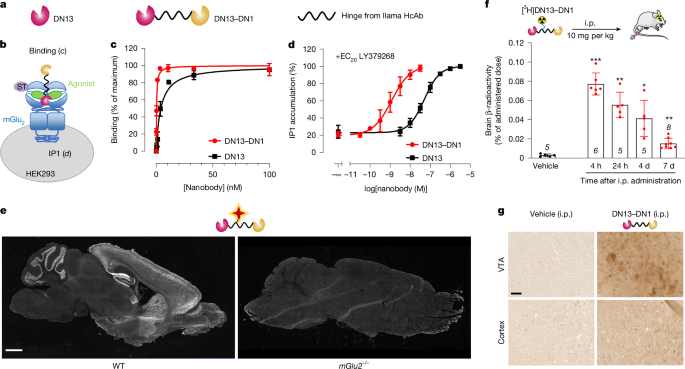
"The majority of brain diseases need new therapies, as current small molecules often lack selectivity, leading to side effects. Antibodies, while specific, have limited brain penetration."
"Nanobodies, derived from camelid antibodies, represent a new approach to target brain diseases. With a 15kDa molecular mass, they can bind to small cavities of their targets."
"Some nanobodies have shown the ability to penetrate the brain, raising the possibility of treating brain pathologies using these alternative therapeutic agents."
"Allosteric modulator nanobodies are highly selective and hydrophilic, preserving physiological activation patterns and minimizing side effects compared to traditional small molecules."
Brain diseases largely require new therapeutic approaches, as existing treatments primarily rely on small molecules that often exhibit poor selectivity and side effects. While antibodies offer target specificity, their ability to penetrate the brain is limited. Recent advancements indicate that nanobodies, the smallest antibody-derived proteins, may effectively reach and treat brain conditions. These nanobodies have shown diverse pharmacological profiles and possess the advantage of allosteric modulation, which reduces side effects and maintains natural receptor activation patterns, showcasing their potential as novel therapies for neurological disorders.
Read at Nature
Unable to calculate read time
Collection
[
|
...
]